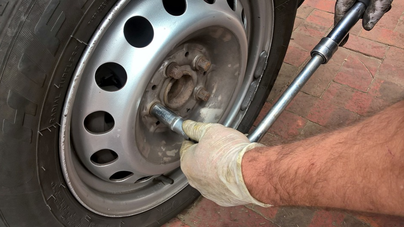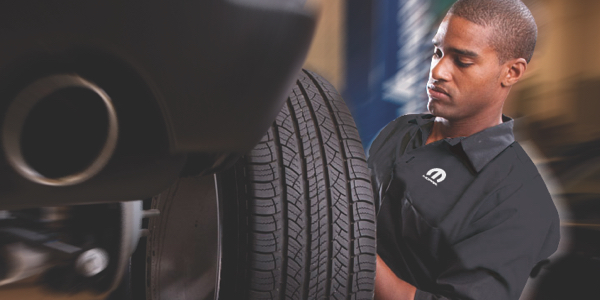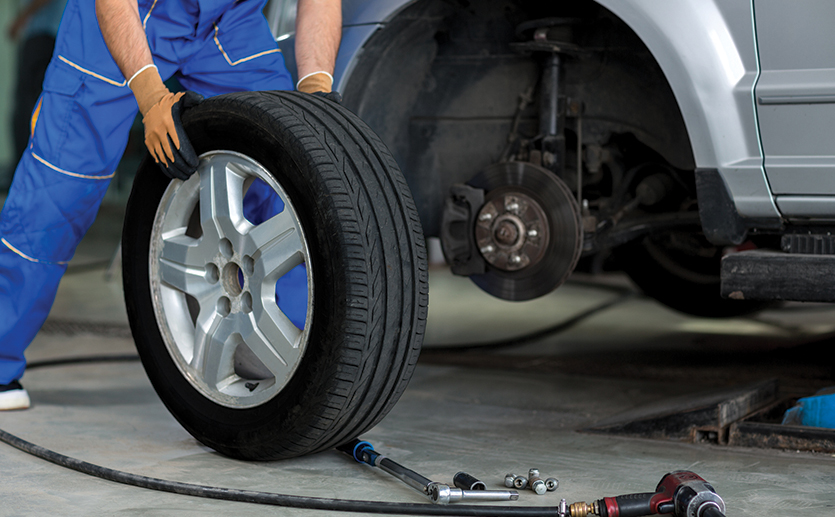Morris Tires: Where GMC Tire Service Fulfills Top Quality
Morris Tires: Where GMC Tire Service Fulfills Top Quality
Blog Article
Tire Service: The Impact of Weather
When it comes to guaranteeing ideal performance and safety on the road, comprehending the influence of weather problems on tire service is crucial. From scorching warm to icy roads, each climate aspect can considerably influence tire performance and total driving experience. By diving right into the results of differing weather on tires, vehicle drivers can gain valuable insights that may enhance their vehicle's performance and durability. In this discussion, we will certainly discover the detailed partnership between climate conditions and tire solution, clarifying the value of weather-specific tire maintenance practices and considerations.
Heat and Tire Efficiency
When exposed to heats, tires experience modifications in performance that can significantly affect automobile safety and security and handling. The warmth generated from extended driving or heat conditions triggers the tire rubber to soften, leading to minimized walk life and enhanced wear. As the rubber ends up being softer, the tire's grip on the roadway diminishes, affecting braking ranges and total traction. In extreme instances, too much heat can even cause tire blowouts, posturing a severe security threat to the lorry and its owners.

Winter Effects
Cold weather problems can have a substantial influence on tire efficiency and security. As temperature levels decrease, tire rubber can solidify, leading to lowered grip on icy or snow-covered roadways. In cool climate, tires might additionally lose air stress much more swiftly, which can impact managing and gas efficiency. Furthermore, cold temperatures can create tire sidewalls to stiffen, increasing the threat of damages from gaps or various other road hazards.
To alleviate the impacts of winter on tires, it is crucial to frequently examine tire pressure and inflate them to the manufacturer's advised levels. Making use of wintertime or all-season tires made for winter problems can additionally improve traction and grip on icy or snowy roadways. Proper tire maintenance, including routine assessments for wear and damages, ends up being much more crucial throughout cooler months to make certain optimum performance and security.
Rainy Conditions Impact
Throughout rainy problems, tire efficiency and safety and security can be substantially affected by the damp road surface areas and decreased visibility. The tread pattern of tires plays a crucial duty in preserving grip on wet roads. Tires with damaged treads are much more susceptible to hydroplaning, where a layer of water develops in between the tire and the roadway surface, leading to loss of traction. To combat this, drivers should regularly examine their tires for sufficient walk depth and consider purchasing tires especially made for wet conditions.
Moreover, stormy weather can also reduce exposure, making it challenging for motorists to see the roadway ahead clearly (GMC Tire Service). In such problems, it is vital to change driving speeds appropriately and keep a risk-free complying with range to enable unexpected quits. Effectively inflated tires can likewise assist in preserving control on wet roadways by giving far better handling and grasp
Snow and Tire Safety
Snow-covered roadways pose distinct challenges navigate to this site for vehicle drivers, highlighting the importance of proper tire selection and upkeep. When driving in snowy conditions, having the best tires can make a significant distinction in safety and performance. Winter months tires are developed with special rubber substances and tread patterns to offer far better traction on snow and ice compared to all-season tires. The much deeper footsteps and sipes of winter months tires aid grasp the roadway better, decreasing the threat of moving and sliding.

Furthermore, motorists ought to take into consideration installing tire chains in severe snowy conditions. Tire chains give extra grip by clutching the snow and ice, boosting security and control. However, it is very important to adhere to producer guidelines when setting up and using tire chains to avoid damage to the tires and car. By selecting the appropriate tires, keeping correct rising cost of living, and taking into consideration additional traction aids like tire chains, drivers can boost their security when navigating snow-covered roads.
Weather-Related Tire Maintenance
When confronted with various climate condition, correct tire upkeep comes to be an essential aspect of lorry safety and security and performance. Weather-related tire maintenance includes a variety of practices focused on making sure optimum tire feature and durability in different climate situations. One vital aspect of weather-related tire maintenance is tire stress regulation. Fluctuating temperature levels can create tire stress to vary, affecting traction and fuel efficiency. On a regular visit this site basis examining and readjusting tire stress according to producer referrals is essential for secure driving in transforming climate condition. In addition, tire tread depth plays a significant read here function in taking care of various climate elements. Tires with adequate tread depth supply far better grasp on wet or icy roads, reducing the risk of hydroplaning or skidding. When tread wear gets to a particular deepness is crucial for maintaining traction and security in damaging climate, evaluating tire step regularly and changing tires. By focusing on weather-related tire maintenance, chauffeurs can improve security, boost automobile performance, and prolong the life-span of their tires.
Conclusion
In conclusion, weather problems have a significant effect on tire performance and safety. From warm influencing tire stress and use to winter lowering traction, it is crucial to consider the weather when maintaining and using tires. Wet problems can reduce hold and cause hydroplaning, while snow can raise the danger of accidents if tires are not correctly equipped. Weather-related tire maintenance is critical in making certain optimum performance and safety and security when traveling.
In this discussion, we will certainly discover the complex relationship between weather conditions and tire service, shedding light on the value of weather-specific tire upkeep techniques and considerations.

Report this page